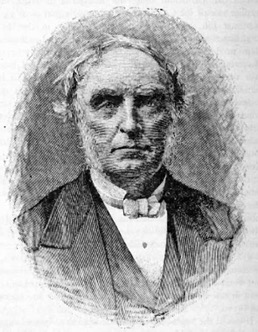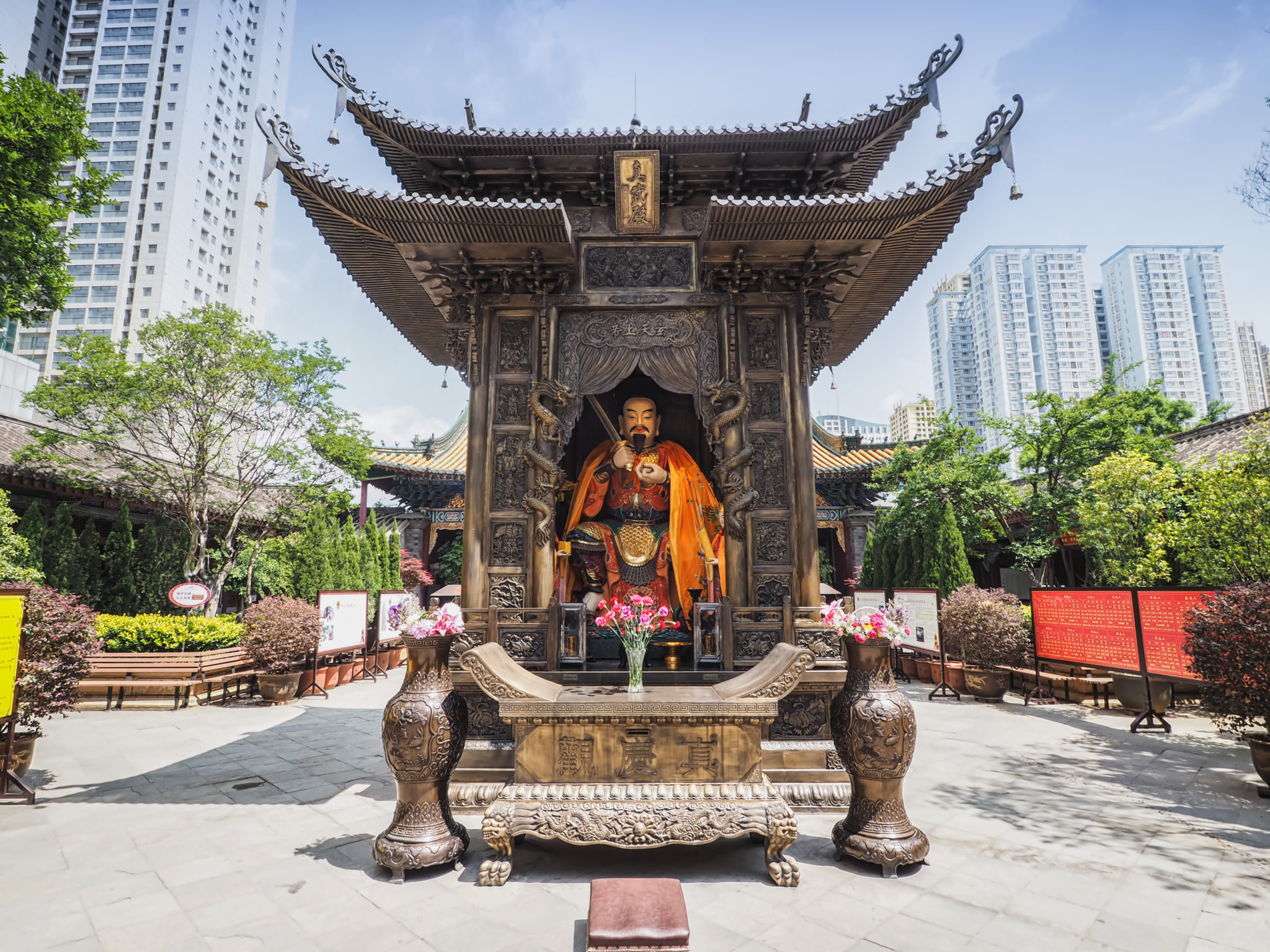Evidence for Original Monotheism in Ancient China
James Legge (1815–1897) was a Scottish missionary to China, an eminent sinologist, and the first Oxford University professor of Chinese studies. During his time in China, Legge produced a massive seven-volume translation of the Chinese classics into English.1 Previously shrouded in mystery, James Legge’s translation of the Chinese classics into English revealed an astounding picture of religion in ancient China. As noted in an earlier post (“Is There Evidence for the God of the Bible in Ancient Cultures?”) on original monotheism, according to the Bible, every human being on planet Earth is a descendent of Noah and his family (Genesis 9:18–19). If this is true, then evidence should be found among ancient cultures for the God of the Bible, including the Chinese culture.

Figure 1: James Legge. Missionary, sinologist, and Oxford professor. Image credit: Wikimedia Commons
Shang Di: The Monotheistic God of Ancient China
Legge was convinced that Shang Di, the God of the ancient Chinese, was synonymous with the God of the Hebrew Bible. In support of this conclusion, he writes:
Do the Chinese know the true God? . . . I answer unhesitatingly in the affirmative. The evidence supplied by Chinese literature and history appears to me so strong, that I find it difficult to conceive how any one, who has studied it, can come to the opposite conclusion.2
Legge reached this conclusion by substituting God in every Chinese classics location where Shang Di is referenced. Legge found that the use of God in these contexts was entirely appropriate, given what is known about the Hebrew God. He concludes, “The Chinese know Him who is the Creator, the Preserver, and the Governor of the Universe.”3 According to Legge, Shang Di is self-existent, he existed before the creation of the universe, and his years are without end. Moreover, in their 4000 years of history, the Chinese have never fashioned an image of Shang Di.4
While some disagreed, Legge was not alone in his conclusion that Shang Di is the Hebrew God. William Henry Medhurst, a scholar and missionary who produced Chinese-English and English-Chinese dictionaries, concurred with Legge. According to Medhurst, Shang Di is the supreme ruler described in the Chinese classics, but whose name was later corrupted and applied to other lesser deities, “but these are . . . different from him whom the ancients worshipped under the title of Supreme Ruler . . .”5
If Shang Di is an essential part of Chinese history, why is this fact not evident to modern Chinese? Author Chan Kei Thong elucidates the matter, saying:
Many of the modern translations of these ancient Chinese texts have excised the passages that mention Shang Di. This is one reason why so many Chinese themselves, even scholars of these texts, are ignorant of the truth of the prevalence and the dominance of the belief in Shang Di in ancient times.6
The Nature of Shang Di
Thong has undertaken to discern God’s attributes as communicated in the Chinese classics using Legge’s complete and unaltered translation. In his book, Faith of Our Fathers, Thong provides evidence from the Chinese classics that Shang Di is sovereign, eternal, immutable, powerful, all-knowing, ever-present, and infinite. Similarly, Thong shows that the moral attributes of Shang Di include love, holiness, grace, faithfulness, goodness, mercy, compassion, and justice.7 Thong concludes that Shang Di is the one true Creator God of the Hebrews revealed in the Bible, known from the earliest times of Chinese civilization.8 In this matter, Thong, Legge, and Medhurst concur.

Figure 2: Temple of Heaven Complex. Imperial sacrificial altar complex in Beijing, China. Image credit: Wikimedia Commons
The Emperor’s Sacrifice and Submission to Shang Di
The Book of Documents (Chinese Classic of History)—generally attributed to Confucius (551–479 BC)—includes references to sacrifice to Shang Di. In the Canon of Shun, Emperor Shun (c. 2294–2184 BC) is said to have sacrificed to Shang Di.9 The last king of the Shang dynasty (c. 1765–1122 BC), King Zhou, is said to have become morally corrupt and to have neglected Shang Di and sacrifices in the temple of his ancestors.10 Because of these transgressions, heaven ordered the destruction of the Shang dynasty.11
Furthermore, the Chinese historian Sima Qian (145–86 BC), in his Historical Records, records the sacrifice of the first emperor of Qin (259–210 BC), who “sacrificed to the Supreme God at Yong.”12 Elsewhere, Sima Qian indicates that in ancient times, emperors of the Xia dynasty (2070–1600 BC) personally sacrificed to Shang Di at the border.13
How exactly was sacrifice to God conducted by the ancient Chinese? Some emperors introduced innovations and corrupted sacrifices to Shang Di by including the worship of other gods, while others neglected these ancient rituals. According to Legge, at the inception of the Ming dynasty (AD 1368–1644), worship of Shang Di was restored under the advice of two committees. Sacrifices were limited to the two great border sacrifices performed earlier during the Xia, Shang, and Zhou dynasties.14 The most recent location where the border sacrifice was performed is the Temple of Heaven (literally Altar of Heaven) complex in Beijing. Until 1911, records indicate that at the Altar of Heaven in Beijing, 654 sacrifices were carried out over approximately 500 years by 22 emperors.15 The one who performed the sacrifice held the Mandate of Heaven. Thus, it was only performed by the emperor. Preparation for the border sacrifice involved selecting sacrificial animals (usually calves), a proclamation by the emperor six days before the sacrifice at the altar mound, and an inspection of the sacrificial animals five days before the ceremony. The emperor fasted for three days in advance of the sacrifice. Two days in advance of the ceremony, the prayers and offerings were inspected by the emperor.16
While some critics have argued that Shang Di is not the God of the Bible, the striking similarity seems hard to ignore and is just as expected if all nations of the Earth traced their heritage back to Noah. Just as Noah had sacrificed to God upon exiting the ark, the kings and emperors of China sacrificed to Shang Di. Winfried Corduan (perhaps the foremost living expert on original monotheism) concludes, “the memory of original monotheism is alive and well in China. Efforts by Thong and others to revive this part of their ancient heritage are spreading.”17
Endnotes
- Ralph R. Covell, “Legge, James,” in Biographical Dictionary of Christian Missions, ed. Gerald H. Anderson (New York: Macmillan Reference USA, 1998), 392–393.
- James Legge, The Notions of the Chinese Concerning God and Spirits (Hong Kong: Hong Kong Register Office, 1852), 7.
- Legge, Notions of the Chinese, 7–9.
- Legge, 32.
- W. H. Medhurst, A Dissertation on the Theology of the Chinese: With a View to the Elucidation of the Most Appropriate Term for Expressing the Deity in the Chinese Language (Shanghai: Mission Press, 1847), 273.
- Chan Kei Thong, Faith of Our Fathers: Finding God in Ancient China (Singapore: Cru Asia Limited, 2018), Kindle,102.
- Thong, Faith of Our Fathers, 101–117.
- Thong, 118.
- Confucius, Book of Documents, trans. James Leege (Greensburg, PA: Lionshare Media, 2015), Kindle, 223.
- Confucius, Book of Documents, 1896.
- Confucius, 1914.
- Sima Qian, The First Emperor: Selections From the Historical Records, trans. Raymond Dawson (Oxford: Oxford University Press, 2007), Kindle, 2086.
- Thong, 129.
- Legge, 44.
- Thong, 125–128.
- Thong, 124–165.
- Winfried Corduan, In the Beginning God: A Fresh Look at the Case for Original Monotheism (Nashville: B&H Publishing Group, 2013), 335.





